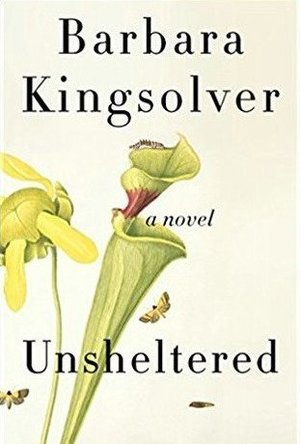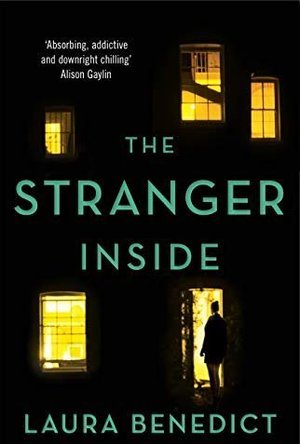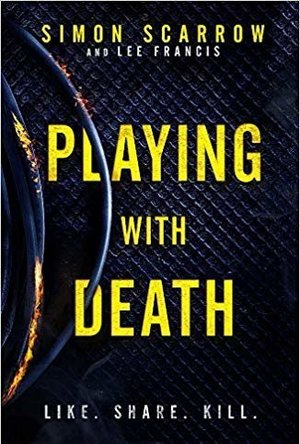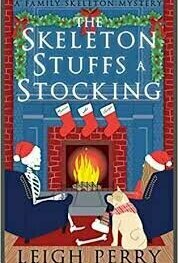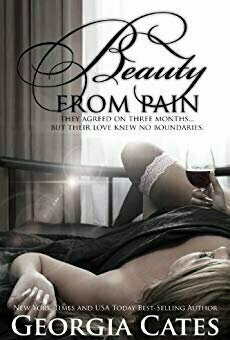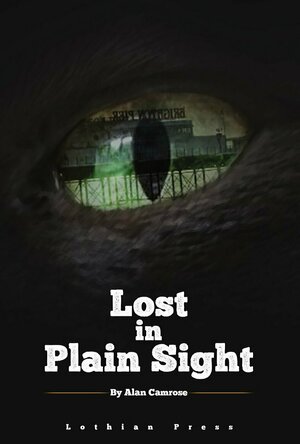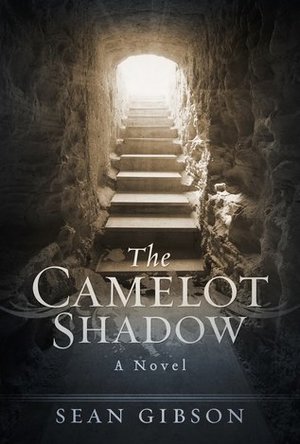Search
Search results
Bookapotamus (289 KP) rated Unsheltered in Books
Jun 22, 2018
Not a favorite
I am typically a big fan of Barbara Kingsolver's books. Her writing is exquisite and reads like a dream. She is usually one of the few writers of historical novels I read as it's not really my most favorite genre, but unfortunately this one was a total snooze-fest. I almost quit several times, I was just SO bored! Honestly, nothing really happens in this book, there are a few deaths, a shooting, and drama of beliefs with the push and pull of science vs. God, but it was just so uneventful and without buildup - I found myself really struggling to get through it.
The book is set in two different eras, in the same town, on the same street, in Vineland, NJ. Willa Knox, present day, is fictional. AS is her family. Mary Treat in 1871, is apparently a real person, a lover of science, plants and creatures. The connection between the two stories is a bit weak I felt. Not sure if it was intentional, but it just didn't really capture my attention in the way I believe it was supposed to. In 1871, Thatcher Greenwood (fictional as well I believe?) meets Mary, and they get along because their beliefs mesh well - they believe in science, and follow Darwin's teachings, and Thatcher finds himself in a bit of jam as the town is "ruled" by Landis, a strict believer that God has created everything, and science is witchcraft.
Willa, is struggling when we meet her - in fact, her entire family - every single one of them seems to have some serious issues! I found it depressing and really didn't find myself liking any of the family very much. We see some similar struggles to Thatcher (their houses are both falling down around them) but not much else mirrors the past.
I do know based on initial talk of this novel, and the title of course, that the joining of the past vs present is in the "Unsheltered" aspect of both of these stories, the way Landis mirrors Trump, the ways a world can come unraveled by rules and rulers, as well as the courage to stand for what you believe in. But it just wasn't there for me - it was so subtle, uninspiring, slow and boring.
I did LOVE the plants and stuff - it's the main reason I wanted to read this book, but sadly they just weren't too heavily featured. The little tidbits of random facts about Pitcher Plants and Venus Fly Traps, and some other plants and bugs was pretty fun and fascinating and I wish there was more of it.
In the end - this just fell really flat for me. I know some of the people and events are real, but some are not (which was hard for me to follow) and Barbara's research and writing is top-notch. I just really wanted an engaging story, with a bit more interest, and a lot less heavy eyelid.
The book is set in two different eras, in the same town, on the same street, in Vineland, NJ. Willa Knox, present day, is fictional. AS is her family. Mary Treat in 1871, is apparently a real person, a lover of science, plants and creatures. The connection between the two stories is a bit weak I felt. Not sure if it was intentional, but it just didn't really capture my attention in the way I believe it was supposed to. In 1871, Thatcher Greenwood (fictional as well I believe?) meets Mary, and they get along because their beliefs mesh well - they believe in science, and follow Darwin's teachings, and Thatcher finds himself in a bit of jam as the town is "ruled" by Landis, a strict believer that God has created everything, and science is witchcraft.
Willa, is struggling when we meet her - in fact, her entire family - every single one of them seems to have some serious issues! I found it depressing and really didn't find myself liking any of the family very much. We see some similar struggles to Thatcher (their houses are both falling down around them) but not much else mirrors the past.
I do know based on initial talk of this novel, and the title of course, that the joining of the past vs present is in the "Unsheltered" aspect of both of these stories, the way Landis mirrors Trump, the ways a world can come unraveled by rules and rulers, as well as the courage to stand for what you believe in. But it just wasn't there for me - it was so subtle, uninspiring, slow and boring.
I did LOVE the plants and stuff - it's the main reason I wanted to read this book, but sadly they just weren't too heavily featured. The little tidbits of random facts about Pitcher Plants and Venus Fly Traps, and some other plants and bugs was pretty fun and fascinating and I wish there was more of it.
In the end - this just fell really flat for me. I know some of the people and events are real, but some are not (which was hard for me to follow) and Barbara's research and writing is top-notch. I just really wanted an engaging story, with a bit more interest, and a lot less heavy eyelid.
Billie Wichkan (118 KP) rated The Stranger Inside in Books
May 22, 2019
Kimber Hannon's belief that she has complete control over her life is shattered the night that she comes home from a trip to find her key no longer opens her front door. There is a stranger living in her house. A stranger who claims he has every right to be there, with the paperwork to prove it. When she confronts the man, he lets her get close enough to whisper, "I was there. I saw what you did."
She doesn't know how he knows her, but with those words Kimber knows this stranger isn't after anything as simple as her money or artwork or charming Craftsman bungalow. She has to find out exactly what he wants and get him out of her carefully orchestrated life before he ruins it.
There are plenty of people in her life who might help, but should Kimber trust any of them? Her lawyer, Gabriel, is also her ex-lover; Diana, her best friend, doesn't know Kimber slept with her husband; her ex-husband has a new, happier life since leaving her; and her co-workers know she'll do anything to get her next sale. And no one can know the real reason this man is in her house. Without trust, everyone's a stranger....
This is a psychological thriller that has plenty of twists and secrets. This book manages to grip you from the very start and doesn't let you go. There are plenty of plots and twists to keep you guessing all the way to the end.
The story is fast paced and well developed characters. The ending of the story will blow your mind.
The plot switches between the two timelines of the past and present and as it does you will learn of secrets and lies.
If you are looking for a suspenseful read then this is the one for you.
Highly Recommend!!
Thank you to NetGalley, Hodder and Stoughton and the author for my free digital ARC.
She doesn't know how he knows her, but with those words Kimber knows this stranger isn't after anything as simple as her money or artwork or charming Craftsman bungalow. She has to find out exactly what he wants and get him out of her carefully orchestrated life before he ruins it.
There are plenty of people in her life who might help, but should Kimber trust any of them? Her lawyer, Gabriel, is also her ex-lover; Diana, her best friend, doesn't know Kimber slept with her husband; her ex-husband has a new, happier life since leaving her; and her co-workers know she'll do anything to get her next sale. And no one can know the real reason this man is in her house. Without trust, everyone's a stranger....
This is a psychological thriller that has plenty of twists and secrets. This book manages to grip you from the very start and doesn't let you go. There are plenty of plots and twists to keep you guessing all the way to the end.
The story is fast paced and well developed characters. The ending of the story will blow your mind.
The plot switches between the two timelines of the past and present and as it does you will learn of secrets and lies.
If you are looking for a suspenseful read then this is the one for you.
Highly Recommend!!
Thank you to NetGalley, Hodder and Stoughton and the author for my free digital ARC.
Sassy Brit (97 KP) rated Playing With Death in Books
Jun 6, 2019
^^ I am familiar with Simon Scarrow’s Roman novels, so was excited to try this one out, as it is something new from an established author. With Playing with Death, Scarrow is co-writing writing this novel with Lee Francis, and it is NOT a historical novel! My goodness. This could be the death of him, or so I thought. But actually, it wasn’t bad.
^^ This is what I’d call a technological thriller and it highlights how the use of gaming via Artificial Intelligence and virtual reality technology could be detrimental to society, even in our world as it is today.
^^ Rose Blake is an FBI agent with a strange new case to investigate, and it is one that will take her beyond anything she can at first imagine, as murder and online gaming intertwine and the boundaries of what she knows to be true are stretched to the limit. To top it all she is feeling distanced from her husband, Jeff, who works as Senetor Kelly’s media manager with very little downtime, plus her own job is (as you would imagine) very demanding and often cutting into her family time, putting a strain their marriage.
^^ It’s a violent, fast-paced story with lots of twists and turns, and as a lover of thrillers, I thoroughly enjoyed Scarrow’s refreshing change of genre. My dad is a huge fan of Scarrow, however, I’m not sure how he’ll take to this since it’s about technology of which I doubt he’ll be interested in. I’m hoping he’ll try it out though. Saying that, this new genre is a great way to reach out to new readers, who may have not read any of his previous historical books.
Overall: I look forward to seeing if this is the start of a new series, as I would like to see how this enjoyable book, develops into more exciting stories.
^^ This is what I’d call a technological thriller and it highlights how the use of gaming via Artificial Intelligence and virtual reality technology could be detrimental to society, even in our world as it is today.
^^ Rose Blake is an FBI agent with a strange new case to investigate, and it is one that will take her beyond anything she can at first imagine, as murder and online gaming intertwine and the boundaries of what she knows to be true are stretched to the limit. To top it all she is feeling distanced from her husband, Jeff, who works as Senetor Kelly’s media manager with very little downtime, plus her own job is (as you would imagine) very demanding and often cutting into her family time, putting a strain their marriage.
^^ It’s a violent, fast-paced story with lots of twists and turns, and as a lover of thrillers, I thoroughly enjoyed Scarrow’s refreshing change of genre. My dad is a huge fan of Scarrow, however, I’m not sure how he’ll take to this since it’s about technology of which I doubt he’ll be interested in. I’m hoping he’ll try it out though. Saying that, this new genre is a great way to reach out to new readers, who may have not read any of his previous historical books.
Overall: I look forward to seeing if this is the start of a new series, as I would like to see how this enjoyable book, develops into more exciting stories.
Cynthia Armistead (17 KP) rated Saltation (Theo Waitley, #2; Liaden Universe, #14) in Books
Mar 1, 2018
[b:Saltation (Theo Waitley, #2)|6669085|Saltation (Theo Waitley, #2) (Liaden Universe, #13)|Sharon Lee|http://photo.goodreads.com/books/1276362333s/6669085.jpg|6131174] is good enough that I finished [b:Fledgling (Theo Waitley, #1)|5585180|Fledgling (Theo Waitley, #1) (Liaden Universe, #12)|Sharon Lee|http://photo.goodreads.com/books/1256005889s/5585180.jpg|5756422], then read it in one sitting. It simply has the sort of momentum that doesn't allow for good stopping points — something that is true of many of the Liaden Universe novels.
At the end of Fledgling, Theo was sponsored into pilot school by Scout Cho sig'Radia. Saltation begins with her time there, just as politically naive as ever, but a much more confident person than she was at the beginning of Fledgling. Many of the characters from Fledgling reappear, including Win Ton, Kamele, and Jen Sar. There are new characters too, though, such as Kara ven'Arith and Orn Ald yos'Senchul (who, by the way, also appear in a free story, <a href="http://baen.com/LandedAlien.asp">Landed Alien</a>, that has just been released at the Baen web site and should be read after Saltation).
Theo is a legal adult now, but a very young one, and she has plenty of growing up left to do. That said, this is a young ADULT novel, not a children's book — while it isn't discussed specifically, Theo does take a lover.
She continues to flex and stretch into an admirable heroine. She isn't perfect, by any means, being sometimes short-tempered and not understanding social cues easily. She's someone readers can relate to, though, and that is important. We were brought up concurrent with the end of [b:I Dare|1103876|I Dare (Liaden Universe, #11)|Sharon Lee|http://photo.goodreads.com/books/1181013406s/1103876.jpg|1644933], which was vastly satisfying. I will go right on with reading [b:Ghost Ship|9762449|Ghost Ship (Liaden Universe, #14, Theo Waitley, #3)|Sharon Lee|http://photo.goodreads.com/books/1327880001s/9762449.jpg|14651808], because I definitely want to know more!
At the end of Fledgling, Theo was sponsored into pilot school by Scout Cho sig'Radia. Saltation begins with her time there, just as politically naive as ever, but a much more confident person than she was at the beginning of Fledgling. Many of the characters from Fledgling reappear, including Win Ton, Kamele, and Jen Sar. There are new characters too, though, such as Kara ven'Arith and Orn Ald yos'Senchul (who, by the way, also appear in a free story, <a href="http://baen.com/LandedAlien.asp">Landed Alien</a>, that has just been released at the Baen web site and should be read after Saltation).
Theo is a legal adult now, but a very young one, and she has plenty of growing up left to do. That said, this is a young ADULT novel, not a children's book — while it isn't discussed specifically, Theo does take a lover.
She continues to flex and stretch into an admirable heroine. She isn't perfect, by any means, being sometimes short-tempered and not understanding social cues easily. She's someone readers can relate to, though, and that is important. We were brought up concurrent with the end of [b:I Dare|1103876|I Dare (Liaden Universe, #11)|Sharon Lee|http://photo.goodreads.com/books/1181013406s/1103876.jpg|1644933], which was vastly satisfying. I will go right on with reading [b:Ghost Ship|9762449|Ghost Ship (Liaden Universe, #14, Theo Waitley, #3)|Sharon Lee|http://photo.goodreads.com/books/1327880001s/9762449.jpg|14651808], because I definitely want to know more!
Phillip McSween (751 KP) rated 2001: A Space Odyssey (1968) in Movies
Jan 21, 2020
From a Sci-Fi Lover, It's a No
During a space mission, a spaceship supercomputer malfunctions and tries to kill the ship’s inhabitants. That’s the best I got for 2001: A Space Odyssey. Some films don’t translate far past their creation date and a lot of times, people find it hard to admit that. Hate me now because I wasn’t a fan of this movie in the slightest.
Acting: 10
Beginning: 4
The first few minutes of the movie left me scratching my head. You can save the whole explanation of the artistic aspect of this part, I’m not buying it and I feel directors have hid over “abstract art” for far too long. If it’s not good, it’s not good, and this? It made no sense. I had no desire to watch the rest of the movie after the first ten minutes, but I kept pushing.
Characters: 10
Cinematography/Visuals: 10
Conflict: 8
Entertainment Value: 6
Memorability: 7
Pace: 4
I snapped my fingers quite a bit through the duration of this movie. I wanted so badly for things to move along, but I felt like the movie thought looking great was more important. While it is cinematically stunning (and well deserving of a perfect score in that category), the story moves at an extremely slow clip. For example, so much time was wasted with one particular landing, I wanted to poke my damn eyes out. Watching this movie was like being stuck in traffic during rush hour.
Plot: 2
Resolution: 1
Overall: 62
I recently stopped reading a book because it dragged on so badly and was so confusing, I just couldn’t enjoy it any longer. With 2001: A Space Odyssey, I’ll just say this: When the movie ends and I have to wiki your plot, it probably wasn’t a good movie. I won’t argue that it deserved recognition for pioneering a beautiful vision of space, but the rest can honestly stay in history.
Acting: 10
Beginning: 4
The first few minutes of the movie left me scratching my head. You can save the whole explanation of the artistic aspect of this part, I’m not buying it and I feel directors have hid over “abstract art” for far too long. If it’s not good, it’s not good, and this? It made no sense. I had no desire to watch the rest of the movie after the first ten minutes, but I kept pushing.
Characters: 10
Cinematography/Visuals: 10
Conflict: 8
Entertainment Value: 6
Memorability: 7
Pace: 4
I snapped my fingers quite a bit through the duration of this movie. I wanted so badly for things to move along, but I felt like the movie thought looking great was more important. While it is cinematically stunning (and well deserving of a perfect score in that category), the story moves at an extremely slow clip. For example, so much time was wasted with one particular landing, I wanted to poke my damn eyes out. Watching this movie was like being stuck in traffic during rush hour.
Plot: 2
Resolution: 1
Overall: 62
I recently stopped reading a book because it dragged on so badly and was so confusing, I just couldn’t enjoy it any longer. With 2001: A Space Odyssey, I’ll just say this: When the movie ends and I have to wiki your plot, it probably wasn’t a good movie. I won’t argue that it deserved recognition for pioneering a beautiful vision of space, but the rest can honestly stay in history.
Mark @ Carstairs Considers (2466 KP) rated The Skeleton Stuffs a Stocking in Books
Sep 27, 2019
That Bone Isn’t Sid’s
When Dr. Georgia Thackery’s dog, Byron, gets out one afternoon, and when she and her daughter Madison find him again, he is clutching a bone. Naturally, the two assume it is part of Sid, and they race home to apologize to their friend. However, all of Sid’s bones are present and accounted for, so they get the police involved. It turns out that Byron has found part of a normal skeleton (you know, not walking and talking), and the police are able to determine that the skeleton was murdered. The police have no leads on who the skeleton might have been in life, but Georgia’s friend and fellow adjunct, Charles, approaches her. He thinks he might know the victim, but the only way to give the police that information might lead the police directly to Charles. And so Georgia jumps into action again, with Sid doing his best to research the case on the internet. Was the victim Charles’s friend? If so, who killed her?
If you are new to the series, you might be a bit lost. You see, Sid is a walking, talking skeleton and Georgia’s best friend. That’s the only paranormal element to the series, and it is done is a realistic manner, which makes it feel very natural. The characters, including Sid, are very strong, which certainly helps make it all seem real. The plot, while not a traditional cozy mystery plot, is very strong with plenty of twists and surprises along the way to the climax. In fact, I liked the fact that it was something different plot wise, and it certainly kept me engaged the entire time. I did think that Christmas aspect could have been stronger, but that’s my only complaint and a very small one at that. As a lover of puns, I absolutely loved the puns and other humor in the book. If you are just now meeting Sid, you are in for a treat. If you are already a fan, you’ll love this newest visit with him.
If you are new to the series, you might be a bit lost. You see, Sid is a walking, talking skeleton and Georgia’s best friend. That’s the only paranormal element to the series, and it is done is a realistic manner, which makes it feel very natural. The characters, including Sid, are very strong, which certainly helps make it all seem real. The plot, while not a traditional cozy mystery plot, is very strong with plenty of twists and surprises along the way to the climax. In fact, I liked the fact that it was something different plot wise, and it certainly kept me engaged the entire time. I did think that Christmas aspect could have been stronger, but that’s my only complaint and a very small one at that. As a lover of puns, I absolutely loved the puns and other humor in the book. If you are just now meeting Sid, you are in for a treat. If you are already a fan, you’ll love this newest visit with him.
Leanne Crabtree (480 KP) rated Beauty from Pain (Beauty, #1) in Books
Oct 14, 2019
Well this is a backburner book (#1 on my to-read on Goodreads), having been on my Kindle since some time in January 2014 when it was released. I think I've put off reading it simply because of the "erotica" label it had on Goodreads. It wasn't exactly erotica, though. Yeah, they had quite a lot of sex but there was a romance to it, too.
So this starts with Laurelyn arriving in Australia with her best friend to spend time with her best friends brother for three months as he studies wine making there. On the first night they head out to a bar and take part in an...open mic night? Laurelyn sings and plays the guitar (I think) and attracts the attention of Jack, a man looking for his next lover. Instead of the usual week/month, he plans to spend three months with his next bed fellow, giving her whatever she wishes for and making her feel special. Laurelyn catches his attention and he plans to seduce her into agreeing to his arrangement.
I guess if I was on the receiving end of an attractive rich guy wanting to spend three months with me, getting to know me and spending a lot of that time in bed, I'd enjoy it, too, but I have to admit I got a little bored with this. It was taking a little too long to get where it was going and I skipped entire sex scenes. The books 271 pages felt more like 500.
It had a rather promising start, apart from the slightly stalkerish behaviour of Jack as he tried to meet Laurelyn again, and I enjoyed the slow seduction and how he treated her. But then I didn't really see the relationship grow as such. It didn't work for me, personally.
By the end, I wasn't all that bothered about what was going to happen next with the characters so I won't be continuing the series.
So this starts with Laurelyn arriving in Australia with her best friend to spend time with her best friends brother for three months as he studies wine making there. On the first night they head out to a bar and take part in an...open mic night? Laurelyn sings and plays the guitar (I think) and attracts the attention of Jack, a man looking for his next lover. Instead of the usual week/month, he plans to spend three months with his next bed fellow, giving her whatever she wishes for and making her feel special. Laurelyn catches his attention and he plans to seduce her into agreeing to his arrangement.
I guess if I was on the receiving end of an attractive rich guy wanting to spend three months with me, getting to know me and spending a lot of that time in bed, I'd enjoy it, too, but I have to admit I got a little bored with this. It was taking a little too long to get where it was going and I skipped entire sex scenes. The books 271 pages felt more like 500.
It had a rather promising start, apart from the slightly stalkerish behaviour of Jack as he tried to meet Laurelyn again, and I enjoyed the slow seduction and how he treated her. But then I didn't really see the relationship grow as such. It didn't work for me, personally.
By the end, I wasn't all that bothered about what was going to happen next with the characters so I won't be continuing the series.
BookishWoo (317 KP) rated Lost in Plain Sight in Books
Jun 3, 2020
I freaking loved this! Yes you heard right, if I could sum my review up in 4 simple words that would be exactly what I would write!
So what made this so good I hear you ask?
For starters, Alan managed to bring 2 of my favourite genres together and it just worked, so well. From the 1st page I was sold, it reeled me in and didn’t let go. This was a book I could really sink my teeth into.
Told in multiple POV’s, which trust me when I say it doesn’t always work and you can easily get lost and have to go back on yourself, I can honestly say this flowed with absolute ease. Each Chapter is told by a one of the main Character’s and you know straight away whose POV you are reading as it’s a chapter heading. The main characters are relatable, quirky and I loved getting to know them.
This was really was well written and Alan is very descriptive when setting a scene. As this is not set in a fictitious world and set in Brighton, you can truly imagine yourself there, especially if you know the area well. This is one of the main reasons I loved this so much. As a fantasy lover, I am used to world building and imaginary places, but having the story set in a actual place with the fantasy element running alongside, was refreshing. Everything is there for fantasy fans…..magic, demons, fae folk, The list goes on. For thriller fans there is murder, mystery and an engaging plot.
All in all this had everything to keep me enthralled and not forgetting it had me laughing out loud in places, Alan clearly has a wicked sense of humour which clearly shines through in his writing.
I received Lost In Plain Sight by Alan Camrose for free in exchange for an honest review as part of a blog tour for Love Books Tours
So what made this so good I hear you ask?
For starters, Alan managed to bring 2 of my favourite genres together and it just worked, so well. From the 1st page I was sold, it reeled me in and didn’t let go. This was a book I could really sink my teeth into.
Told in multiple POV’s, which trust me when I say it doesn’t always work and you can easily get lost and have to go back on yourself, I can honestly say this flowed with absolute ease. Each Chapter is told by a one of the main Character’s and you know straight away whose POV you are reading as it’s a chapter heading. The main characters are relatable, quirky and I loved getting to know them.
This was really was well written and Alan is very descriptive when setting a scene. As this is not set in a fictitious world and set in Brighton, you can truly imagine yourself there, especially if you know the area well. This is one of the main reasons I loved this so much. As a fantasy lover, I am used to world building and imaginary places, but having the story set in a actual place with the fantasy element running alongside, was refreshing. Everything is there for fantasy fans…..magic, demons, fae folk, The list goes on. For thriller fans there is murder, mystery and an engaging plot.
All in all this had everything to keep me enthralled and not forgetting it had me laughing out loud in places, Alan clearly has a wicked sense of humour which clearly shines through in his writing.
I received Lost In Plain Sight by Alan Camrose for free in exchange for an honest review as part of a blog tour for Love Books Tours
Ivana A. | Diary of Difference (1171 KP) rated The Camelot Shadow in Books
Jun 3, 2018
‘’I can either tell you my tale, or I can respond to your feeble witticisms. I cannot, in my mildly inebriated state, do both.’’
This is not your usual story related to King Arthur, Merlin and Camelot. This will, in fact, be quite different story and not only unusual, but one of a kind.
We go back in time when Queen Victoria was ruling over England. In a time when the author really liked to point out the fact that the characters are using trains. It was pointed out so much, that I had to do a bit of research to see if trains existed in that time. They did – apparently England had the oldest rail transport in the world. And Queen Victoria was one of the first royals to use that form of transport too.
Now, I am not even sure why I kept going on about trains… Back to the story…
The Camelot Shadow covers the story of Lord Alfred Fitzwilliam, a man whose wife is ill from an incurable illness. When an opportunity arises, giving him the chance and hope that he might save the life of his lover, he goes on a mission to find an object from the time when King Arthur was the ruler of England, and Merlin was his companion.
With a help from a group of people, Alfred digs the history and the stories of the past, only to discover that not everything he believed in was true, and not everyone that he trusted is his ally.
A story that reminded me of Dan Brown’s work. Quite similar in the sense of clues, history, what is a myth and what is a fact, though also quite distinctive, as it covers people’s characters so well, describing their personalities in a powerful way.
‘’Wealth. Status. Happiness. A perfect life. All built on an ephemeral foundation, an impossibility masking a lie that, if exposed, if openly acknowledged, would bring it all crashing down around our heads.’’
When a great disappointment comes around, and all hope is gone, people change, and people feel things. A person starts to wonder what they did wrong, what could they have done differently, what if… Alfred is one of the people where we will see his change over the chapters. For better or for worse, I’ll let you decide.
‘’It was Guinevere’s infidelity that brought down Arthur’s Camelot’’ – he said, wiping a trickle of Scotch from his chin with the back of his sleeve. ‘’It was God’s cruelty that brought down mine.’’
A book that explains good and evil in the unusual way. I thought I could explain good and evil, but sometimes my evil can do you good, and your good can do harm to everyone. And power… oh what people are capable to do for power…
‘’Power, Arthur had taught him, was not something to covet, but rather something to treat in the same manner one might handle a wild mastiff – with considerable respect, constant vigilance, and a trace of fear. ‘’
If you are a fan of history fiction, and stories about Arthur and Merlin, you would definitely want to dive in into this book and get lost into the world. And that is not the only thing that this book covers… It covers hope, faith, loss, love, good, evil, power, guilt and everything in between. Get ready for an adventure. One full of bravery and magic. And maybe… maybe some hope.
A huge thank you to the author, Sean Gibson, who was kind enough to give me an e-copy of this book in exchange for an honest review.
This is not your usual story related to King Arthur, Merlin and Camelot. This will, in fact, be quite different story and not only unusual, but one of a kind.
We go back in time when Queen Victoria was ruling over England. In a time when the author really liked to point out the fact that the characters are using trains. It was pointed out so much, that I had to do a bit of research to see if trains existed in that time. They did – apparently England had the oldest rail transport in the world. And Queen Victoria was one of the first royals to use that form of transport too.
Now, I am not even sure why I kept going on about trains… Back to the story…
The Camelot Shadow covers the story of Lord Alfred Fitzwilliam, a man whose wife is ill from an incurable illness. When an opportunity arises, giving him the chance and hope that he might save the life of his lover, he goes on a mission to find an object from the time when King Arthur was the ruler of England, and Merlin was his companion.
With a help from a group of people, Alfred digs the history and the stories of the past, only to discover that not everything he believed in was true, and not everyone that he trusted is his ally.
A story that reminded me of Dan Brown’s work. Quite similar in the sense of clues, history, what is a myth and what is a fact, though also quite distinctive, as it covers people’s characters so well, describing their personalities in a powerful way.
‘’Wealth. Status. Happiness. A perfect life. All built on an ephemeral foundation, an impossibility masking a lie that, if exposed, if openly acknowledged, would bring it all crashing down around our heads.’’
When a great disappointment comes around, and all hope is gone, people change, and people feel things. A person starts to wonder what they did wrong, what could they have done differently, what if… Alfred is one of the people where we will see his change over the chapters. For better or for worse, I’ll let you decide.
‘’It was Guinevere’s infidelity that brought down Arthur’s Camelot’’ – he said, wiping a trickle of Scotch from his chin with the back of his sleeve. ‘’It was God’s cruelty that brought down mine.’’
A book that explains good and evil in the unusual way. I thought I could explain good and evil, but sometimes my evil can do you good, and your good can do harm to everyone. And power… oh what people are capable to do for power…
‘’Power, Arthur had taught him, was not something to covet, but rather something to treat in the same manner one might handle a wild mastiff – with considerable respect, constant vigilance, and a trace of fear. ‘’
If you are a fan of history fiction, and stories about Arthur and Merlin, you would definitely want to dive in into this book and get lost into the world. And that is not the only thing that this book covers… It covers hope, faith, loss, love, good, evil, power, guilt and everything in between. Get ready for an adventure. One full of bravery and magic. And maybe… maybe some hope.
A huge thank you to the author, Sean Gibson, who was kind enough to give me an e-copy of this book in exchange for an honest review.
